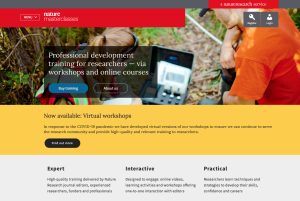Train
Both academic and non-academic employers seek transferable skills beyond the technical skills acquired in the laboratory. Some examples include: teamwork, effective communication, project management, organization skills, industry specific knowledge and strong leadership. It is important to translate your experiences to a variety of audiences.
Here are some questions that can assist you when thinking about future training you may need:
Can you describe your research in a dynamic way to someone who may not have a science background?
Are you willing to tackle novel projects in which you have a limited background?
Do you have enough knowledge and awareness of your future career choice?
Do you know how to motivate others to accomplish a specific goal?
Along with an excellent scientific training, students and postdocs require professional skills development. Some of the skills, which are in very high demand in any job sector are –
Communication
Leadership
Team Player
Organization
Project Management
Business Acumen
Out-of-box Thinking
Mentoring
In order to impart these skills during academic advancement, we are using innovative approaches and building mini-courses/certificate programs to increase the knowledge & training you need to transition to any new career and be successful. Take a look at some of the courses offered in the past and new ones being offered. Stay tuned!
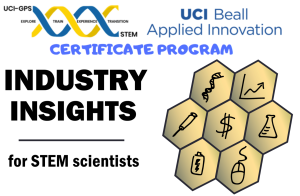
Industry Insights for STEM Scientists
Industry Insights for STEM Scientists. (Previously, Business Concepts for STEM Scientists) The program is designed to help early career researchers (PhD students, Postdocs) by providing insights into how an industry functions. During this 8 week certificate program, we will discuss basics of business math, behind the scenes’ of starting and functioning of a company (Business model canvas) with examples (UBER), value proposition, increasing the value of company/market fit, business strategy & business model innovation, University<>Industry collaborations, business development panel, business communications training and business pitch competition.
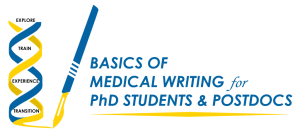
Basics of Medical Writing for PhD Students & Postdocs
5 week mini-course is designed to teach (PhD students & Postdocs – trainees) the landscape of the medical writing field, roles and responsibilities of a medical writer, and the variety of transferable skills required to transition into these roles. The mission of this course is to help trainees understand ins-and-outs of the medical writing field & teach ways to transition successfully. This course is taught by UCI alumni and other professionals currently involved in medical writing roles in biopharmaceutical companies, medical device companies & medical writing agencies in Orange County. Examples of affiliation include, Abbvie (Previously Allergan), Edwards Lifesciences, Quest Diagnostics, PrecisionValue & Medtronic
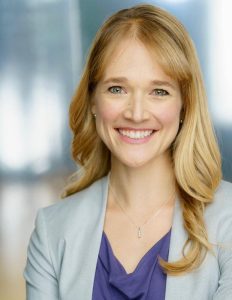
Elevator Pitch Workshops & Competition | Effective Communications Certificate
Bri McWhorter is the founder of Activate to Captivate, where she teaches communication techniques from an actor’s point of view. She is a speech coach for our elevator pitch competition and has worked with GPS-BIOMED leadership to create a new certificate program: Effective Communications. The program covers presentation fundamentals including how to overcome nerves, make a presentation active rather than passive, utilize vocal variety, and command a room.

Science Communication Skills
Science Communication Skills was previously offered each Winter Quarter and taught by Sandra Tsing Loh, well-known author, actress, and host of the NPR podcast: Loh Down on Science. Grad students and postdocs were taught how to engage and inform the audience in a few words, avoid jargon, and project in a professional manner. The course culminated in TED-style talks performed by each participant!
In 2020, the course was offered in a flipped-classroom format, where students watched online video modules of the course first and then attended in-person sessions by Sandra Tsing Loh.
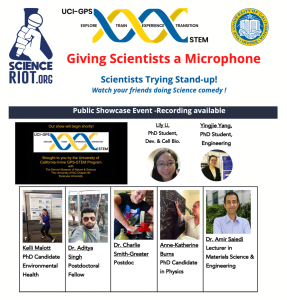
Giving Scientists a Microphone! Science Comedy with Science Riot
A 4-hour long workshop that covers essential principles of comedic writing and presentation applying it to science communication across any platform, including public speaking, podcasting, and other media. Participants learn how to introduce their professional work, find relatable perspectives and attitudes to frame a public dialogue, make scientific topics accessible, navigate difficult subject matter, and utilize comedy theory as a versatile communication tool. Upon completion of the workshop, participants apply for advanced-level communications workshops to be ready for public showcase events.

GPS-STEM Academic Advancement Activities: Fellowship Success for Graduate Students & Postdocs
The aim of this series is to provide instruction and practice of writing NIH fellowships. The format is designed to help PhD students & postdocs to write NIH F30,F31/F32 fellowship application.
Learning Objectives:
-
- Understand the grant review criteria and the principles of grant peer-review
- Become familiar with each required component of grant application
- Develop practical experience writing Specific Aims and Background/Significance sections, Goals for Training
- Practice peer-review skills
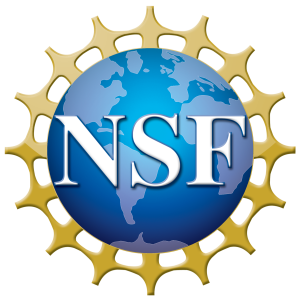
National Science Foundation (NSF) – Graduate Research Fellowship Program (GRFP) Workshop
Prof. Mike Mulligan, past Associate Dean of the School of Biological Sciences & Dr. Harinder Singh, past Director of GPS-STEM organized a workshop on NSF’S GRFP & offered campus resources on academic success.
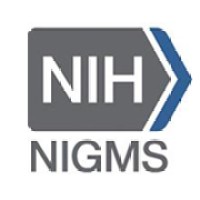
Pathways to Independence Awards: K99/R00. National Institute of General Medical Sciences (NIGMS) Workshop
Workshop offered by Isaah Vincent, PhD, Science Review Officer, NIGMS & Oleg Barski, PhD, Program Director, Division of Pharmacology, Physiology & Biochemistry, NIGMS

Free Division of Continuing Education
University Extension, UCI’s branch of Continuing Education, offers free enrollment for GPS-STEM members in a variety of courses (Worth ~$700). Most of the courses are offered online, so scheduling is convenient for busy grad students and postdocs and can be completed outside of regular lab hours. Maximum 1 course per quarter. No more than 3 courses throughout Ph.D. & postdoc duration.
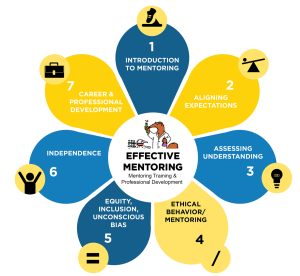
Effective Mentoring – Mentoring Training & Professional Development
GPS-STEM in collaboration with the Institute of Clinical & Translational Research (ICTS), Cancer Research Institute (CRI), and Schools of Biological Sciences & Medicine introduces, learning modules on Effective Mentoring. The focus of the mentoring program is to ensure that everyone feels supported in their pursuit of satisfying and successful careers in academic research & beyond.

The Business of Science – Applying the Scientific Method to Succeed in Industry: During the summer GPS-BIOMED members along with fellow grad students and postdocs from Southern California Universities have the chance to participate in The SciPhD Business of Science Certificate Program, gaining professional skills to make them more competitive for professional careers.
SciPhD’s programs are certain to benefit Ph.D. students and postdocs regardless of their career aspirations. While several courses and books aim to describe the fundamentals of business, project management, and career development, SciPHD’s tailored approach to presenting these key concepts to scientists with advanced degrees sets it apart. The facilitators’ extensive academic and industrial experiences allow them to draw parallels between our scientific training and the non-technical skills strongly desired inside and outside of academia. – 2016 UCI Postdoc Participant

Teaching Apprenticeship in STEM
Interested in education or building your teaching skills? GPS-BIOMED previously partnered with the Center for Engaged Instruction & School of Biological Sciences to bring you: STAP (Previously TAP-STEM)! Applications for the SUMMER TEACHING APPRENTICESHIP PROGRAM (STAP) or previously called TAP-STEM are accepted during the Summer and close in September.

